Interview with Hilary Mantel: Thorough Unbeliever
Peter Breedveld
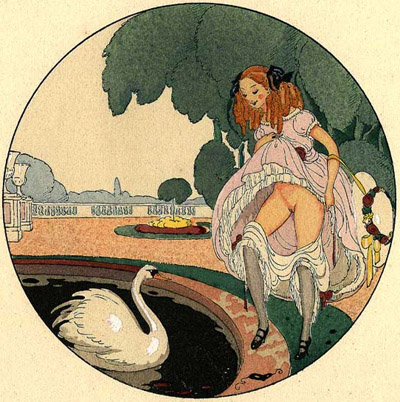
Illustratie: Gerda Wegener
The real people in your novel Beyond Black are far more horrible than what the main protagonist, paranormal medium Allison sees in the afterlife.
“Well, you have the characters, the ‘fiends’, who are half out and half in this world. They’re dead, but in Alisson’s world that doesn’t mean very much. They’re on the verge of becoming flesh. Which people were you thinking of?”
Alison’s mother, for instance. But also Alison’s neighbours, who drive a homeless person into suicide. While Alison’s spirit guide, Morris, claims he is responsible.
“The neighbours pester this homeless person and persecute him. These people are so mean and ungiving, so scared. They live very secure lives, quite prosperous, compared to their grandparents or even their parents. But they each sit in their separate houses, panicking about what’s going on out there. A pretty unpleasant crew.”
Morris claims he’s seen the devil, but never God. In your autobiography you write you saw the devil, or thought you did, as a seven year old.
“I didn’t define what I sensed as the devil, but as something very loathsome and evil. You could call it the devil I guess. I didn’t put a name to it, because it was as much a physical feeling as something out there. Something that made me feel very ill. It ‘s true that it was very important to me, until I wrote Giving up the Ghost it wasn’t something I had really explored. And even when I had written Giving up the Ghost I wasn’t any near an explanation of it. What I could do was put down as truthfully as I could how it felt, moment by moment, as it was happening. And when I had done that, I transferred it into Beyond Black and gave Alisson the same kind of experience when she’s playing in the garden and she sees a man moving boxes and she thinks there’s something horrible inside the boxes. And then when she goes into the house, she looks at herself in the mirror and the face she sees is Morris’, who takes possession of her at that moment, if you like. Having had that experience as a little girl it made the things I was being taught about religion in school pretty much irrelevant. They seem beside the point.”
Do you believe in the afterlife?
“Not really, but I’m not making a great point of it. I’m sceptical but I am open to be convinced. I’m still deliberating about it.”
Your books are all about horrible things people do to each other because of what they believe. For instance in Everyday is Mother’s Day one of the protagonists, Evelyn, kills her daughter’s baby because she believes it’s a changeling.
“I’m not so much occupied with the evil people do in the name of religion as the evil they do in the name of love, whilst expressing the most benevolent intent, that they know what is best for the people. I am not in any sense on an antireligious crusade. I don’t have very much personal faith, but on the other hand I can understand that one lives as if one believes. I cannot say where I’ll be in ten years time. I am fairly certain I will never go back to the catholic church, but I couldn’t say I will not go back to some church. I think that when you were raised with the idea of a God, the feeling of there being a God will never quite leave you.”
“By the time I was twelve I had become a thorough unbeliever. I was very intolerant at the time and couldn’t see how intelligent people could sustain any faith at all. And it took me lots of years to understand that there might be reasons to live as if there’s a next life and a God. So I’m trying not to draw any absolute lines. I hope I’ve learned to be a little more broadminded. Of course there’s certain state of rebelliousness at a certain age, where you reject everything you’ve been taught. But it’s not so easy to shake early conditioning. And I think being brought up a catholic from the cradle, it does give you a strong sense of otherworldly things. From your earliest years, you’re being asked to think about some other reality which is more important than the reality you live in everyday. You learn early on that what you see, is not all there is. It cuts against you taking the world literally, which is absolutely essential for becoming a writer. So I can’t regret having been brought up that way.”
This is the second part of my big Hilary Mantel interview. The first part of this interview you’ll find here. Next time: black humour, imagination, and how novels are read.
boeken, English, Peter Breedveld, 19.03.2010 @ 17:13

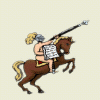
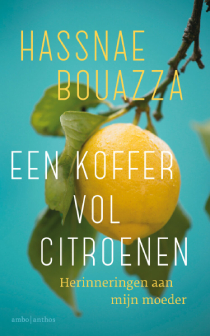
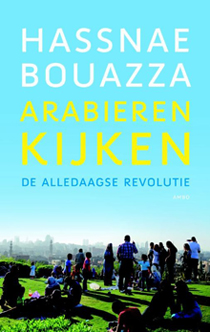
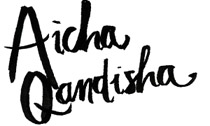

 RSS
RSS